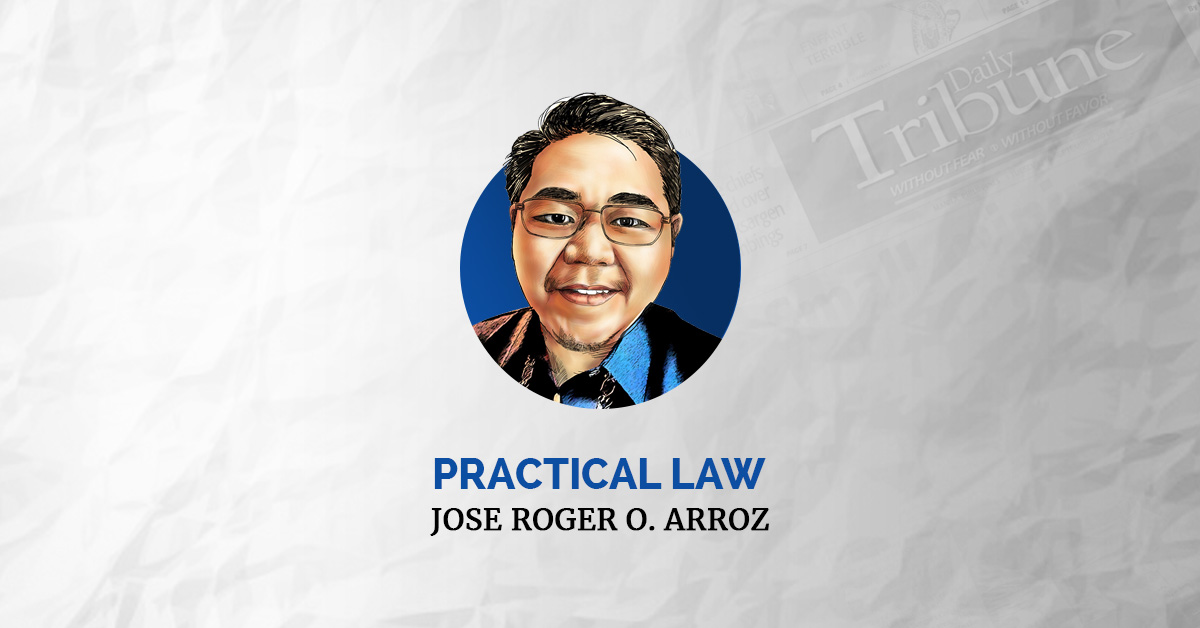Bank deposits are absolutely confidential, or are they? Republic Act (RA) 6426 and its subsequent amendments enacted between 1976-1978 permit an examination of bank deposits upon the written consent of the depositor. Additionally, a closer look at Section 2 of RA 1405 and P.D. 1782 (promulgated in 1981) reveals that, for Philippine Currency deposits, the law allows for at least six exceptions to the general rule of bank deposit confidentiality.
The Supreme Court ruled that such confidentiality yields in certain instances enumerated in the case of Marquez versus Desierto (G.R. 135882, 27 June 2001) to wit:
(1) In an examination made during a special or general examination of a bank;
(2) In an examination made by an independent auditor hired by the bank to conduct its regular audit;
(3) Upon written permission of the depositor;
(4) In cases of impeachment;
(5) Upon order of a competent court in cases of bribery or dereliction of duty of public officials; or
(6) In cases where the money deposited or invested is the subject matter of the litigation.
These exceptions apply to peso deposits only and find no application to foreign currency deposits, despite the numerous amendments introduced by then President Ferdinand E. Marcos.
The preferential treatment of foreign currency deposits was made more special with the prohibition against the attachment or garnishment of foreign deposits mandated by P.D. 1246 in 1977. This further encouraged would-be criminals to capitalize on the legislative “holiday” on foreign currencies created by the passage of this law. Clearly, this prohibition gives criminals and racketeers justification to use our banking institutions as “legal fronts” to finance their clandestine operations since, even if caught, these foreign currency accounts could not be seized or garnished — unless the same fell under the category of a “covered transaction” under the Anti-Money Laundering Act (AMLA).
And while the ruling of the Supreme Court in the cases of Salvacion versus Central Bank of the Philippines (G.R. 140687, 18 December 2006) and the China Banking Corp. v. Court of Appeals and Gotianuy (G.R. 140687, 18 December 2006) seem to have relaxed the stringent application of the law, these decisions never questioned the validity of the amendments introduced during Martial Law, nor the seemingly iron-clad policies adopted when it comes to the confidentiality of foreign currency deposits. If anything, the Supreme Court used general terms such as “justice and fairness” and “pro hac vice” to account for their deviation in the legal application of the law.
In ruling in favor of rape victim Karen Salvacion, and allowing the writ of execution against the foreign currency deposit of her rapist, the Supreme Court opined that “the application of the law depends on the extent of its justice.” The ruling in Salvacion serves as an exception to the general rule. Fast-forward to the controversial proceedings leading to the impeachment of then Chief Justice Corona, the Supreme Court granted his prayer for the issuance of a Temporary Restraining Order (TRO) to stop the Senate impeachment court from compelling Philippine Savings Bank (PSBank) officials from disclosing information on his foreign currency deposits. The basis was the inviolable provisions of Section 8 of the Foreign Currency Deposit Act.
The most perplexing question would now be, why are foreign currency deposits given so much protection — even as against the country’s peso?
It may be argued that foreign currency deposits should be fiercely protected to attract foreign investments and, in so doing, increase our country’s foreign reserves. Our lawmakers feel that giving incentives and tax breaks to foreign investments would boost our economy and make us more globally competitive.
However, after the passage of these laws many decades ago, it would seem that these justifications would need to be carefully studied. Unwittingly, these laws favoring foreign deposits have given birth to the illicit use of our banking institutions to perpetuate illegal acts related to the drug trade, money laundering, and other criminal activities.
